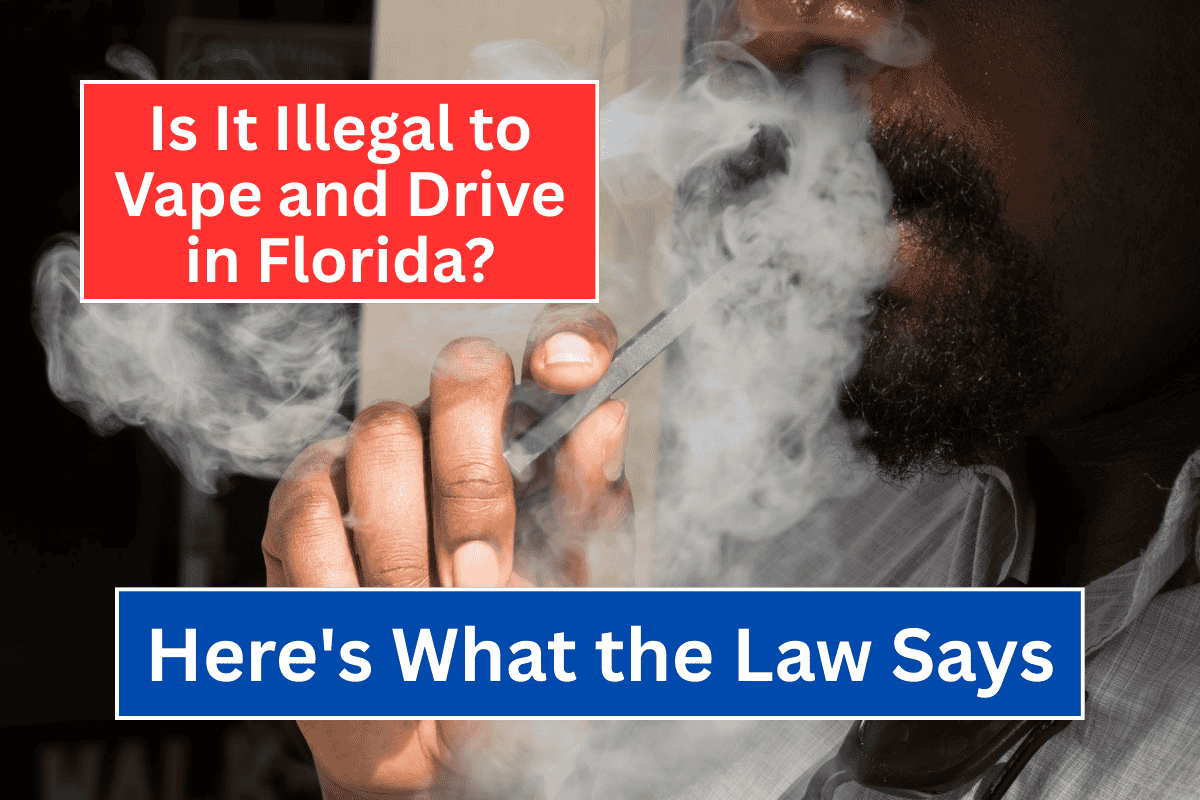In Florida, vaping and driving is not explicitly prohibited by state law, but there are some important factors to consider:
1. Distracted Driving Concerns
While vaping itself is not illegal while driving, any activity that distracts you from operating your vehicle safely, including vaping, could lead to a distraction-related violation if it causes you to fail to pay attention to the road.
If you’re involved in an accident or pulled over, officers may cite you for careless driving or distracted driving if they believe vaping contributed to your lack of attention.
2. Public Use Regulations and Vehicle Restrictions
Florida’s laws primarily regulate where you can use vaping products in public spaces, such as workplaces, restaurants, public transportation, and certain outdoor areas. However, vaping while driving is not specifically banned, unless it leads to reckless or unsafe driving.
Additionally, if you are a minor, possessing or using a vaping product while driving could still violate Florida’s age restriction laws (minimum age for purchasing or possessing vaping products is 21). However, the law does not specifically mention vaping in vehicles for adults.
3. Health and Safety Concerns
While there are no laws directly prohibiting vaping and driving, secondhand aerosol from vaping could potentially pose health risks for passengers in the vehicle. If a passenger complains or if the fumes are considered to cause an unsafe situation (for example, impairing visibility), it could lead to a citation.
4. Potential Penalties
The penalties for vaping-related offenses would typically relate to underage possession or disorderly conduct rather than specifically vaping while driving. However, if vaping leads to distraction or violates other traffic laws, you could face fines or other consequences.
In summary, vaping and driving in Florida is not inherently illegal, but it may lead to legal consequences if it causes distracted or unsafe driving. Always be mindful of how vaping affects your ability to drive safely, and ensure you’re not violating any traffic laws or public health regulations.












